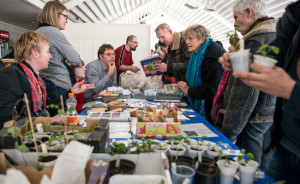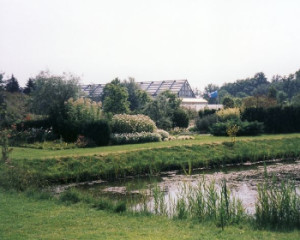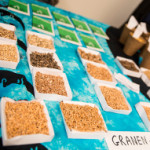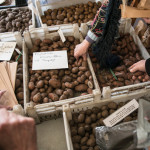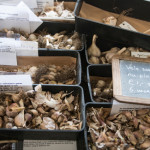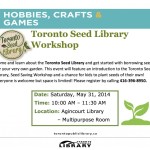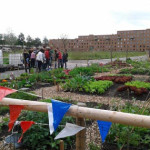 On the 8th and 9th of March 2014 I was co-organiser of the third edition of the ‘Reclaim the seeds’ festival in the Netherlands. This was held at the beautifull Botanical Garden in Haren, Groningen.
On the 8th and 9th of March 2014 I was co-organiser of the third edition of the ‘Reclaim the seeds’ festival in the Netherlands. This was held at the beautifull Botanical Garden in Haren, Groningen.
The first and second event, in 2012 in Amsterdam and 2013 in Den Bosch were allready very well visited, but the over a Thousand visitors that came to the event exceeded largely our expectations. There where 27 stands with special and historic seeds, more than the years before and many people spontaneously brought their own seeds to swop. Both standholders, workshopgivers as visitors were very positiv about the event.
The event attracted people from all over Netherlands, from Germany, but to a large extent from the region. It is very clear that the growing of special varieties of seeds and seedsaving is alive in the North. One of the outcomes of the event was the starting of a Northern Seedsavers Network.

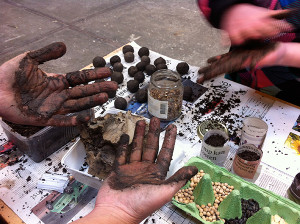 All workshops where very well visited. There where political workshops about the European seed legislation as well as very practival workshops like seedsaving, permaculture etc.
All workshops where very well visited. There where political workshops about the European seed legislation as well as very practival workshops like seedsaving, permaculture etc.
 One of the highlights was the presentation of three representatives of Colombian farmerorganisations. This was their first visit on their European tour to raise awareness about the new seed legislation in Colombia. They shared their problems due to the new freetrade treaty between the United States and Colombia. Thousands of tons of local and regional, non registered seeds – including real food like mais – were under threat of mass destruction. The positive site of their story was, that farmers are more and more organising themselves, creating their own seed networks and the big scale national protests in 2013 had the effect that the harsh seed legislation is postponed.
One of the highlights was the presentation of three representatives of Colombian farmerorganisations. This was their first visit on their European tour to raise awareness about the new seed legislation in Colombia. They shared their problems due to the new freetrade treaty between the United States and Colombia. Thousands of tons of local and regional, non registered seeds – including real food like mais – were under threat of mass destruction. The positive site of their story was, that farmers are more and more organising themselves, creating their own seed networks and the big scale national protests in 2013 had the effect that the harsh seed legislation is postponed.
Very inspiring was the visit of the founder of the Toronto Seed library.
“Each new seed library represents a new, radically decentralized approach to food security.
Those at the vanguard of the movement recognize the revolutionary importance in their work. No one is demanding any transparency or accountability from the big seed companies. More and more, the only way we will have any kind of seed sovereignty is by saving our own seeds and sharing them.”
– Alan Green, Librarian and founder of the Hudson Valley Seed Library


Saturday night was a debate on ”the living Genebank’. All participants agreed that the thousands of varieties of vegetables, fruits and cereals on the fields and in gardens should be preserved, not only deep frozen in a genebank, but specially also on the land. Differences in opinion where also there: one put more emphasis on the maintanance of historical varieties, whereas someone else stressed the importance that ‘ordinairy’ farmers regain knowledge and skills to use their own seeds and get involved in creating new, sustainable varieties.
Jürgen Holzapfel from Longo Maï, representing the ‘European Campaign for Seed Sovereignty’ mentioned specially the important role of consumers in the preseverence of old and special varieties. Everybody agreed that we have to transform the present day, industrialised agriculture with only a small amount of varieties and crops and this means a more direct involvement between consumers and producers.
On Sunday the 9th of March the main topic was city agriculture. After a presentation how to create community gardens the participants visited city gardens in Groningen. In the last garden, the Grunotuin, we helped on this Sunny afternoon to create and prepare a new plot with spades and wheelbarrows for the new season. This succesfull citygarden allready has 80 participants from the surrounding neighbourhoods.
The first seed event was clearly organised again in relation with the revision of the European Seed legislation. This time again, the participants and visitors gave clear messages of protest: the agrarian biodiversity and the access to seeds is seen as very important. The multiplication, the reuse, trade and access to seeds should be permitted, not just as a small niche and exeption of the rule, but allways and without restrictions and quota for production in order for this agriculture to form a counterbalance against the growing grip of big seedcompanies like Monsanto on the seedmarket and agriculture in general.
(Update: On 11 march 2014 the European Parliament listened to the many reactions and protests from the society and voted against the recent proposal for a new European Seed legislation. In the mean time it seems that the European Commission will continue her proposal anyway and it will be discussed again in the Parlement after the European elections in May.)

